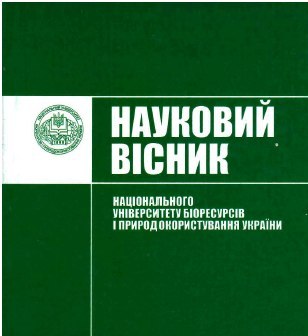Translation Of German Composites In Agrarian Discourse
DOI:
https://doi.org/10.31548/philolog0(257).2016.032%20-%2037Abstract
The article highlights the ways of translation of the German composites in the agricultural discourse.
It was stated that difficulties of text translation on the agrarian subjects are often associated with the search of relevant terms that are used in the agricultural discourse.
There are particular difficulties while translating German composites, which are very intensive in its meaning and at the same time the semantic compression is typical of them.
It is noted that there are (two or more) derivative stems for composite terms.
It is higjlighted that structurally the German composites are divided into copulative and determinative.
It is emphasized that the use of composite structures are typical of scientific and technical texts, due to the accumulation of time and facts in them otherwise the information may be provided by only more advanced syntactical constructions.
Some attention is drawn to the fact that the information is the basis of scientific and technical translation, therefore the interpreter’s goal is to convey the information of the German original text into the target Ukrainian language without meaningful drawbacks.
The desire to convey the original information encourages the search for ways to transfer such composite terms, which would satisfy the requirements for the adequacy of the translation.
The ways of translation of composites by means of the Ukrainian language in terms of their structure are studied.
Frequently used models of transaltion for composites are identified.
The article deals with ways of translation of the German composites in the agricultural discourse. Composites studied The ways to translate German composites into Ukrainian, depending on their structure, is shown. The most common methods of translation of composites are determined depending on the frequency.
References
Deprez, J. (2014) Übersetzungen von deutschen Nominalkomposita ins Niederländische: semantische und syntaktische Aspekte. Gent, – 107 S.
Elsen, H.(2009) Komplexe Komposita und Verwandtes in: Germanistische Mitteilungen. – № 69. – S. 57-71.
Fleischer W., Barz I. (2012) Wortbildung der deutschen Gegenwartssprache. Berlin/Boston: De Gruyter, – 484 S.
Herget K., Proschwitz H.(2008) Übersetzung deutscher Nominalkomposita aus der Fachsprache der Technik. – Translation Journal. Volume 12, No. 3 July 2008.
Kotülkovä, V. (2004) Tschechische Entsprechungen der deutschen Komposita.
Sbornik praci ftlozoficke fakulty Brnenske univerzity. Studia minora facultatis philosophicae universitatis Brunensis, – № 9. – S.129-143.
Was ist ökologischer Landbau? [Electronic resource]. – Available at:
http://www.oekolandbau.nrw.de/fachinfo/umstellung/einfuehrung/index.php.
Downloads
Published
Issue
Section
License
Relationship between right holders and users shall be governed by the terms of the license Creative Commons Attribution – non-commercial – Distribution On Same Conditions 4.0 international (CC BY-NC-SA 4.0):https://creativecommons.org/licenses/by-nc-sa/4.0/deed.uk
Authors who publish with this journal agree to the following terms:
- Authors retain copyright and grant the journal right of first publication with the work simultaneously licensed under a Creative Commons Attribution License that allows others to share the work with an acknowledgement of the work's authorship and initial publication in this journal.
- Authors are able to enter into separate, additional contractual arrangements for the non-exclusive distribution of the journal's published version of the work (e.g., post it to an institutional repository or publish it in a book), with an acknowledgement of its initial publication in this journal.
- Authors are permitted and encouraged to post their work online (e.g., in institutional repositories or on their website) prior to and during the submission process, as it can lead to productive exchanges, as well as earlier and greater citation of published work (See The Effect of Open Access).

